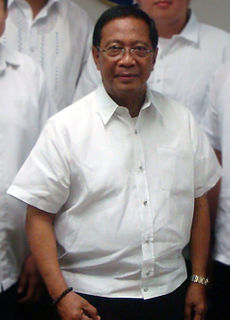A Quote by Mother Teresa
To be able to proclaim the Good News to the poor we must know what is poverty.
Related Quotes
The command to the Twelve to go out and proclaim the Good News is also valid for all Christians, though in a different way.... the Good News of the kingdom which is coming and which has begun is meant for all people of all times. Those who have received the Good News and who have been gathered by it into the community of salvation can and must communicate and spread it.
When we give help to the poor, we are not doing the work of aid agencies 'in a Christian way'. Those are good, it is a decent thing to do - aid work is good and quite human - but it is not Christian poverty, which St. Paul desires of us and preaches to us. Christian poverty is that I give of my own, and not of that which is left over - I give even that, which I need for myself, to the poor person, because I know that he enriches me. Why does the poor person enrich me? Because Jesus Himself told us that He is in the poor person.
As a reporter, you know the tropes of how stories on poverty work in any country. A reporter will go to an NGO and say, "Tell me about the good work that you're doing and introduce me to the poor people who represent the kind of help you give." It serves to streamline the storytelling, but it gives you a lopsided cosmos in which almost every poor person you read about is involved with a NGO helping him. Our understanding of poverty and how people escape from poverty, in any country, is quite distorted.
Political systems must love poverty-they produce so much of it. Poor people make easier targets for a demagogue. No Mao or even Jiang Zemin is likely to arise on the New York Stock Exchange floor. And politicians in democracies benefit from destitution, too. The US has had a broad range of poverty programs for 30 years. Those programs have failed. Millions of people are still poor. And those people vote for politicians who favor keeping the poverty programs in place. There's a conspiracy theory in there somewhere.
There is another important point: encountering the poor. If we step outside ourselves we find poverty. Today-it sickens the heart to say so-the discovery of a tramp who has died of the cold is not news. Today what counts as news is, maybe, a scandal. A scandal: ah, that is news! Today, the thought that a great many children do not have food to eat is not news. This is serious, this is serious! We cannot put up with this! Yet that is how things are. We cannot become starched Christians, those over-educated Christians who speak of theological matters as they calmly sip their tea.







































